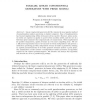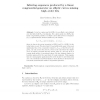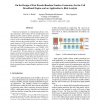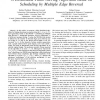6 search results - page 1 / 2 » Parallel Linear Congruential Generators with Prime Moduli |
106
click to vote
PC
1998
15 years 1 months ago
1998
Linear congruential generators (LCGs) remain the most popular method of pseudorandom number generation on digital computers. Ease of implementation has favored implementing LCGs wi...
110
click to vote
DCC
2007
IEEE
16 years 1 months ago
2007
IEEE
Let p be a prime and let E(IFp) be an elliptic curve defined over the finite field IFp of p elements. For a given point G E(IFp) the linear congruential genarator on elliptic curv...
122
click to vote
ICPP
2008
IEEE
15 years 8 months ago
2008
IEEE
Numerical simulations in computational physics, biology, and finance, often require the use of high quality and efficient parallel random number generators. We design and optimi...
120
click to vote
IJNSEC
2010
14 years 9 months ago
2010
Digital Signature Algorithm (DSA) is an underlying algorithm to form a signature in the Digital Signature Standard (DSS). DSA uses a new random number (or nonce) each time a signa...
143
click to vote
ISPDC
2005
IEEE
15 years 7 months ago
2005
IEEE
Abstract— In this article, we propose a fully distributed algorithm for finding all primes in an given interval [2..n] (or (L, R), more generally), based on the SMER — Schedul...




